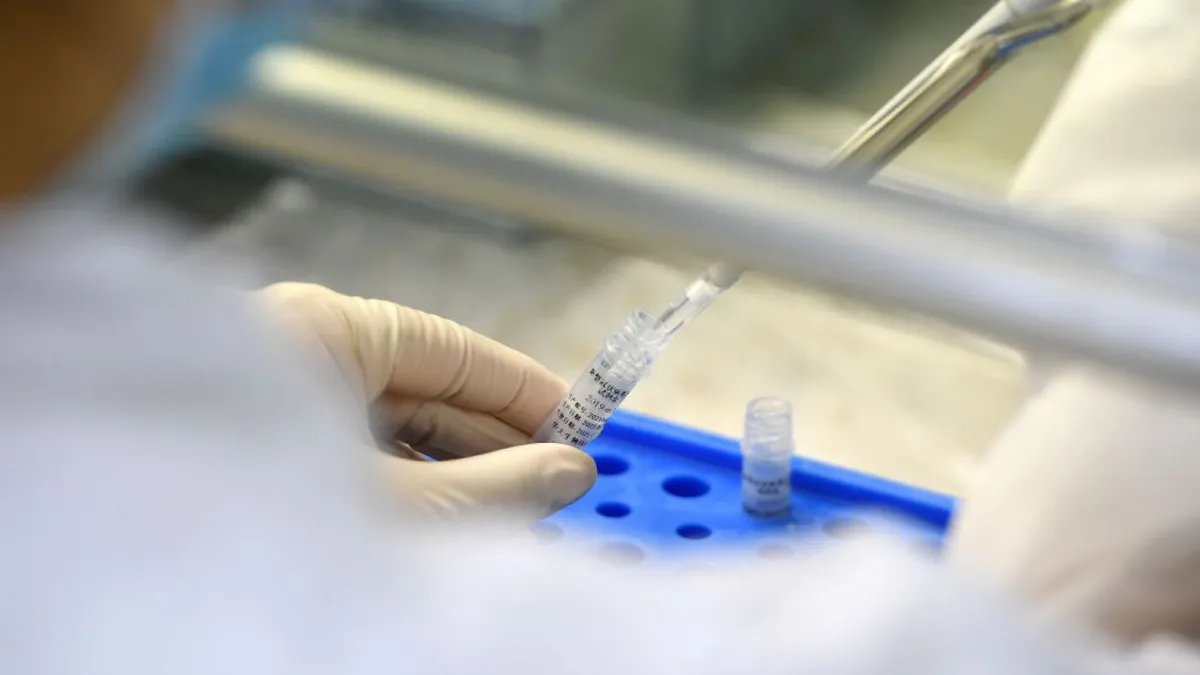
On Monday, President Trump issued a pivotal executive order aimed at restricting federal funding for research in the controversial field known as gain-of-function research. This type of research, often referred to as dual-use research, involves experiments with viruses and pathogens that possess the potential to trigger a global pandemic. The focus of these studies is to understand how infectious agents might become more transmissible or cause severe illness in humans.
The field of gain-of-function research has long been a subject of heated debate due to concerns that scientists could inadvertently create a more dangerous pathogen in the laboratory, which could escape and lead to widespread outbreaks. These fears have prompted numerous initiatives over the years to enhance monitoring and control over such research. The controversy intensified during the COVID-19 pandemic, when various theories emerged regarding the origins of the virus, including the suggestion that the SARS-CoV-2 virus might have leaked from a laboratory in Wuhan, China.
According to Will Scharf, the White House secretary, many believe that gain-of-function research played a significant role in the emergence of the COVID-19 pandemic. Trump's executive order is designed to provide robust tools to enforce a ban on federal funding for gain-of-function research conducted abroad. Additionally, it aims to strengthen oversight mechanisms and develop a comprehensive strategy to ensure that all biomedical research is conducted safely.
While some scientists strongly refute the lab-leak theory, arguing that the evidence points to a natural spillover from wildlife, there is a consensus among many researchers on the need for better oversight of gain-of-function research. Concerns persist that a broad moratorium could hinder vital research necessary for developing treatments and preventive measures against future pandemics. Kristin Matthews, a fellow in science and technology policy at Rice University's Baker Institute for Public Policy, cautioned that banning such research could leave the scientific community unprepared for the next COVID-like virus.
Conversely, there are advocates for restricting funding aimed at gain-of-function research. Richard Ebright, a microbiologist at Rutgers University, who supports the lab-leak theory, warned that accidental or deliberate release of pathogens could result in catastrophic pandemics. The White House's executive order seeks to block any U.S. funding of gain-of-function research in nations deemed risky, such as China and Iran, or other countries with inadequate research oversight. Furthermore, it prohibits U.S. dollars from supporting foreign research likely to cause another pandemic.
As per the White House fact sheet, the executive order will empower American research agencies to identify and eliminate federal funding for biological research that poses a potential threat to public health, public safety, or national security. The administration asserts that this order will enhance the safety and security of biological research without stifling U.S. innovation.
Following the announcement, several officials from the Trump administration praised the funding restrictions as a crucial step. Robert F. Kennedy Jr., Secretary of Health and Human Services, commended President Trump for his vision and courage. Likewise, Dr. Jay Bhattacharya, director of the National Institutes of Health, labeled the day as historic, emphasizing that conducting gain-of-function research does not protect against pandemics or safeguard against threats from other nations. He highlighted the inherent risks, including the possibility of accidental leaks leading to future pandemics.